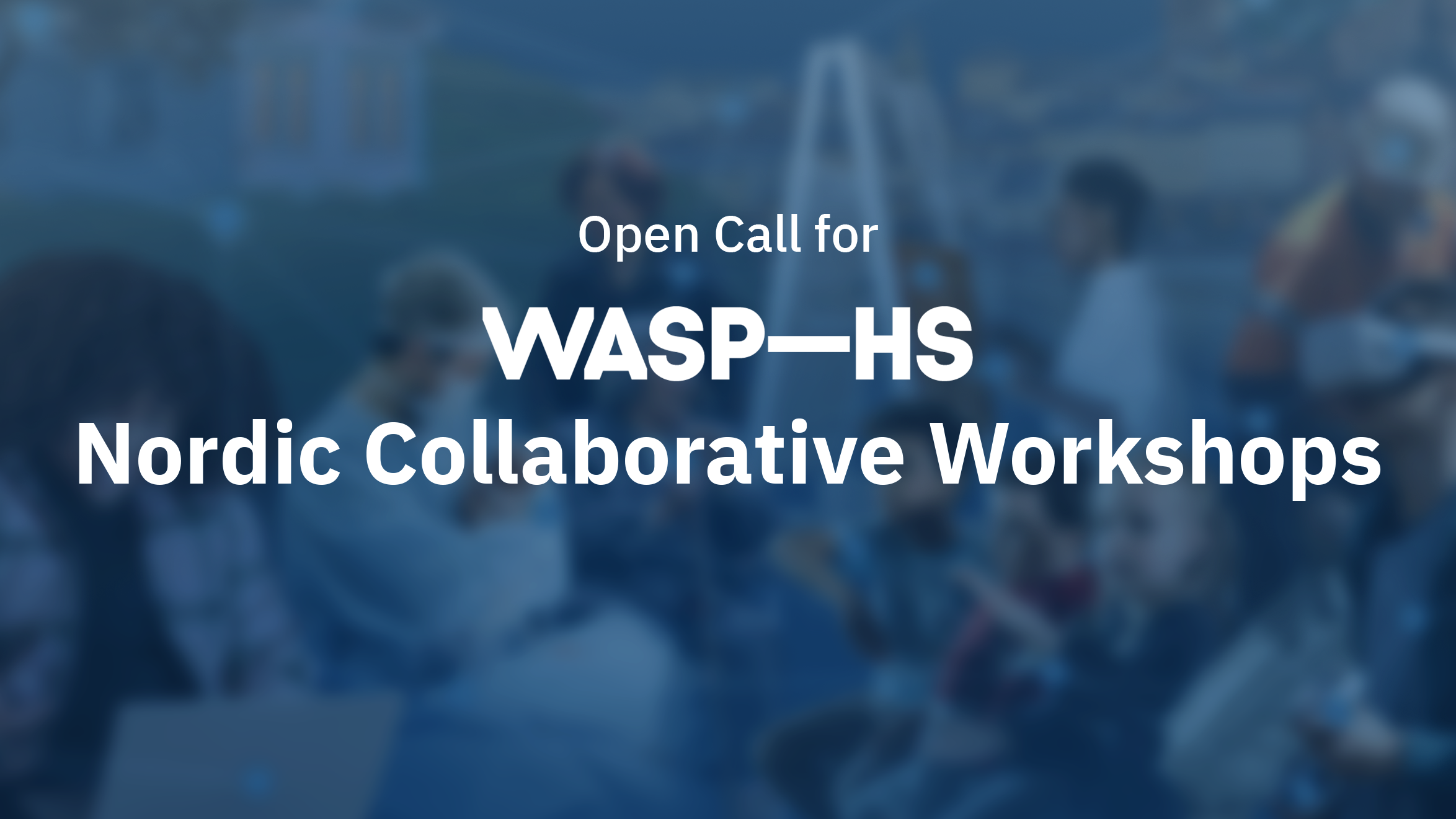The second WASP-HS Community Reference Meeting (CRM) Report has now been published as a report. The CRM took place in May 2021, at which AI in the digital world was discussed.
WASP-HS CRMs aim to help both public and private organizations in Sweden with challenges and questions which regard their interest. Further, this supports development within the WASP-HS program. Participants of the meeting included researchers from the majority of Swedish universities, industry, national and regional governments, as well as the general public and international organizations.
On May 26th, 2021, WASP-HS second CRM, called Life in the Digital World, occurred. Various round-table discussions took place, mainly focused on four main areas. The main areas were; education personalization, policy-making, and interaction. The discussions from the CRM Life in the Digital World have now been concised and published as a report.
Research Roadmap
As presented in the CRM Report, future research should be grounded on the fundamental democratic principle of Swedish society and political tradition. Future research should therefore explore the following:
- How power relationships between people inevitably affect the shaping of technology. Analysing Human-Computer Interaction through the lenses of different altered relationships to technology can reveal more nuanced connections between the designers and users of autonomous systems.
- How to give users control of what data they share and with whom. Users typically engage with several subcultures and collectives at the same time, and their willingness to share identity markers depends on the context.
- Addressing ethical and legal issues of AI systems in practice is central to a down-to-earth understanding of AI’s potential and risks in higher education. A continuous dialogue between multiple educational stakeholders remains critical for the responsible configuration of just and caring data-informed practices in higher education.
- Supporting policy makers and helping them understand how technology affects and is affected by social behaviour. Tools that visualize behaviour need to include constructs to model social behaviour, in ways that support understanding of the effects of policies in particular in times of crises, and complex social change.
Please download and read the full report here.
The first WASP-HS CRM Report, Healthcare, can be downloaded and read here.





